With the rising popularity of plant-based diets, there is an ever-increasing demand for healthy substitutions for traditional snack items.
Sunflower seeds are a popular choice in many households.
Still, if you’re looking to switch it up or enjoy something different now and then, plenty of delicious options to substitute for sunflower seeds are available.
This blog post will discuss some great alternatives that can bring variety to your snacking routine while still providing all the nutrition you need!
What Are Sunflower Seeds?
Sunflower seeds are the edible kernels of sunflower plants.
These small, black or white seeds have a slightly nutty flavor and can be used in various recipes, including salads, baked goods, and savory dishes.
In addition to being eaten as snacks, they may also be pressed for oil and roasted for seasoning.
Sunflower seed butter, made from the seeds of sunflowers, is also a popular substitute for peanut butter.
The oil extracted from these small, nutrient-packed seeds can be used for cooking, baking and frying.
Sunflower oils are often preferred over other types of oil because they are high in monounsaturated fats and low in saturated fat.
Additionally, sunflower seeds can be used in breads, salads and granola for added flavor and crunch.
Sunflower seeds are rich in vitamin E, fiber, protein, healthy fats and iron.
They are easy to add to a variety of dishes, with their versatility making them an excellent addition to any diet.

Substitutes For Sunflower Seeds
Sunflower seeds are a delicious and healthy snack, but they may not always be available in your kitchen.
If you need a substitute for sunflower seeds, try these options:
Chia Seeds
Chia seeds are a type of seed that comes from the plant Salvia hispanica, which is native to Central America.
The Aztecs and Mayans have enjoyed them for centuries as a source of nourishment.
Chia seeds contain nutrients, including omega-3 fatty acids, protein, fiber, antioxidants, and minerals like calcium, magnesium, and phosphorus.
They also contain a good amount of iron and zinc.
Chia seeds have a mild nutty flavor and can be added to smoothies, oatmeal, yogurt, salads, or baked goods. T
hey are also great as a topping on toast or sprinkled over cereal.
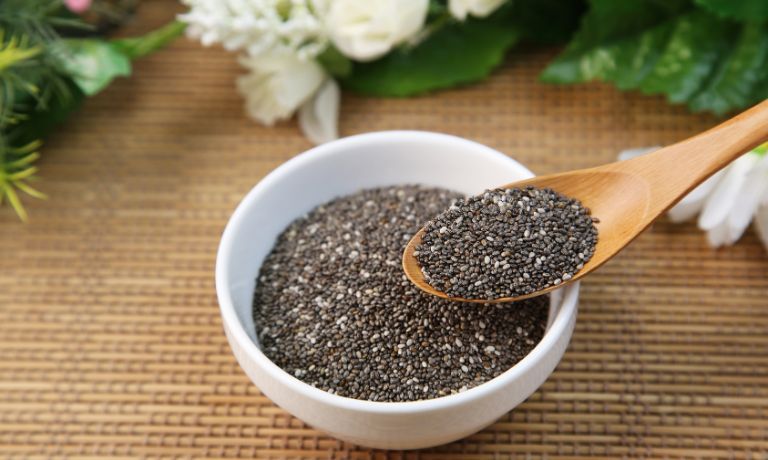
Sesame Seeds
Sesame seeds are tiny, flat oval seeds with a nutty taste and a delicate, almost invisible outer hull.
They come in a variety of colors, including white, yellow, black and red.
Sesame seeds are used to add flavor and texture to many dishes and are commonly found on hamburger buns, breadsticks, bagels and other baked goods.
They contain essential nutrients and minerals, including copper, manganese, magnesium and calcium.
In addition, sesame seeds are a good source of plant-based protein.
They’re also rich in iron, vitamin B6 and zinc. The nutty flavor of sesame seeds also makes them a great addition to meals.
They can be added to salads, stir-fries, soups and sauces for an extra boost of crunchy texture and robust flavor.
Sesame seeds can also be sprinkled over pasta, rice and other grains. Furthermore, they make delicious toppings for breads and baked goods.
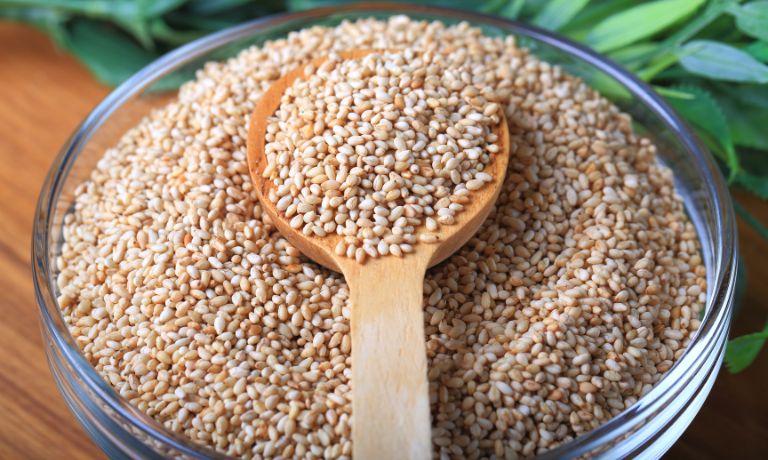
Pumpkin Seeds
Pumpkin seeds (also known as pepitas) are edible seeds that come from the inside of a pumpkin.
They have a crunchy texture and a nutty flavor, making them popular snacks for people around the world.
Pumpkin seeds can be roasted, spiced, or made into oil. In addition to their great taste, pumpkin seeds are also a great source of nutrients.
Pumpkin seeds contain antioxidants, minerals, vitamins, healthy fats, and fiber – all of which contribute to their many health benefits.
These seeds provide more fiber than sunflower seeds and tend to be lower in calories.

Poppy Seeds
Poppy seeds are tiny, kidney-shaped seeds harvested from the dried seed pods of the opium poppy plant.
They are often used in a variety of baked goods and savory dishes, and can also be eaten raw or toasted.
Poppy seeds have a nutty flavor and crunchy texture that makes them a great addition to salads, sauces, breads, pastries, and other recipes.
They have a similar flavor profile to sunflower seeds but are slightly more pungent and nutty.
Poppy seeds also have a higher fat content than sunflower seeds, which can make them a great source of healthy fats.
Additionally, poppy seeds provide some essential vitamins and minerals like iron, zinc, calcium, magnesium, and phosphorus – making them a nutritious addition to any meal or snack.
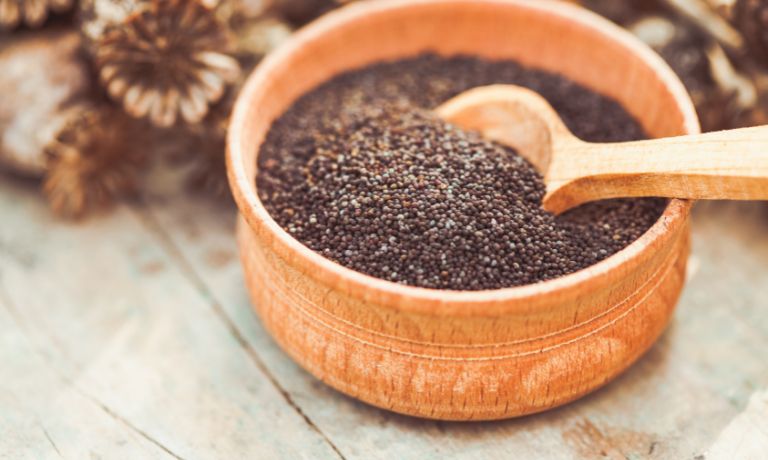
Flax Seeds
Flaxseeds, also known as linseeds, are a nutritious whole grain that is packed with fiber and essential fatty acids.
They are small, flat seeds in brown or golden varieties.
Flaxseed is a substitution for sunflower seeds due to its high nutrient content, including omega-3 fatty acids (alpha-linolenic acid).
So if you’re looking for a nutritious alternative to sunflower seeds, flaxseeds are worth considering!
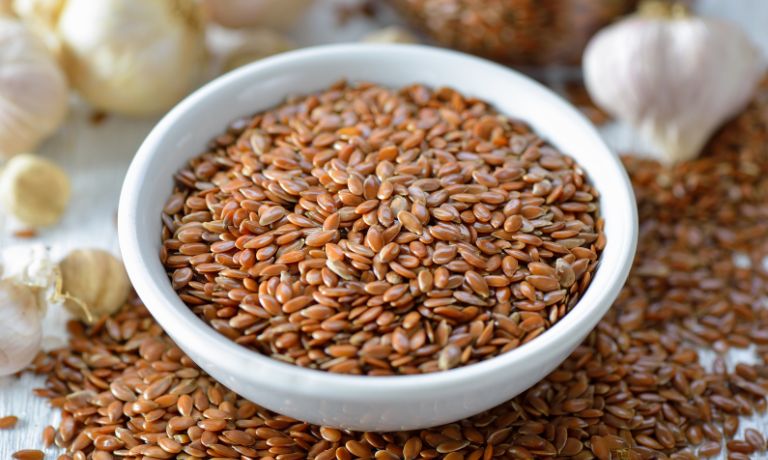
Pecan Nuts
Pecan nuts, native to North America, are famous for their rich nutritional content.
They’re a great source of healthy fats, protein, vitamins and minerals like manganese, zinc and copper.
Pecans have a unique flavor that’s both sweet and nutty. Additionally, they’re rich in antioxidants.
They also contain a high amount of dietary fiber, supporting digestion and helping you feel fuller for longer periods.
So if you’re looking for a nutritious, tasty alternative to sunflower seeds, Pecan nuts are an ideal choice.
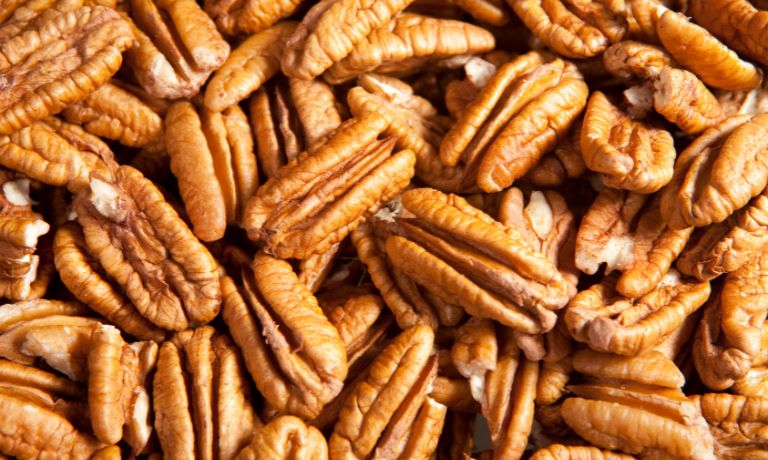
Peanuts
Peanuts are a type of legume that is widely used in various dishes, snacks, and desserts.
They are high in protein and fiber and low in fat, making them a substitute for foods such as sunflower seeds which can be higher in fat and calories.
Peanuts also provide essential vitamins and minerals like magnesium, folate, and Vitamin E.
In addition, peanuts are a great source of antioxidants which can help protect your body from damage caused by free radicals.
They can be enjoyed in many forms such as boiled, roasted, or even raw.
Peanuts are a versatile ingredient that is easily incorporated into many dishes, making them an ideal alternative for sunflower seeds.

Almonds
Almonds provide important nutrients like magnesium, iron, calcium, zinc and B vitamins.
Almonds are a great alternative because they have a mild nutty flavor and provide an abundance of health benefits.
You may need to adjust the amount used when substituting almonds for sunflower seeds, as almonds are typically more dense than sunflower seeds.
With all these health benefits, it’s no wonder why almonds have become the go-to snack for many people.

FAQs
Can Sunflower Seeds Be Used In Place Of Chia Seeds?
Yes, sunflower seeds can be used as a substitute for chia seeds in some recipes, such as smoothies and baked goods.
They share many of the same health benefits and have slightly different tastes.
Can I Use Walnuts Instead Of Sunflower Seeds?
Yes, you can substitute walnuts for sunflower seeds in this recipe.
However, the flavor and texture of the final product will be different as walnuts tend to have a slightly sweeter taste and a more crunchy texture than sunflower seeds.
Can I Use Hemp Seeds Instead Of Sunflower Seeds?
Yes, you can use hemp seeds instead of sunflower seeds in many recipes.
Hemp seeds provide various nutritional benefits, such as being a source of essential fatty acids, plant-based protein, and minerals.
They also have a mild nutty flavor that can be used to enhance the flavor of your dishes.
Conclusion
There are many healthy options to substitute for sunflower seeds that can add flavor, texture and nutrition to your recipes.
From sesame and pumpkin seeds to flaxseeds, pecans and almonds, these alternatives can help provide a nutritious boost to any meal or snack.
Whether you’re looking for a crunchy topping or a flavorful addition to a dish, these sunflower seed substitutes are sure to hit the spot.
Try some of these healthy options and enjoy all the benefits they have to offer!

